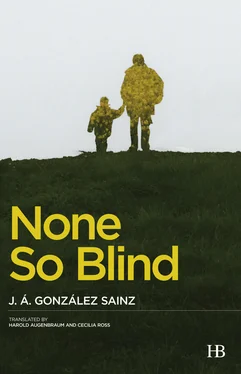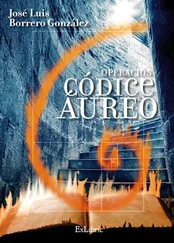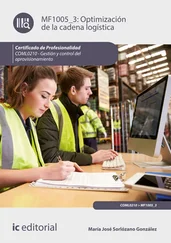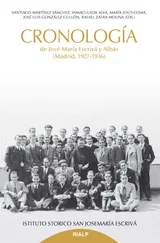You just might not live to tell the tale , people were in the habit of saying that — and other people were in the habit of hearing it — as though it were the most natural thing in the world, or just wait, you’ll be sorry, or you’re gonna get it, think about what you’re doing, I’m not gonna tell you your business, you wouldn’t want to end up regretting anything later on, you wouldn’t want any unpleasant surprises. Or we’ll run into each other sometime soon, kid, don’t you worry, this is a really small town and we all know each other here, just you watch yourself, or we’ll take care of you soon enough, we know where you live, which car is yours, where you take your son, what time you pick him up, and if one day something happens to you or someone gives you what you’ve got coming, well, don’t come complaining to me, you know best, don’t say I didn’t warn you. The entire linguistic topography of threats and intimidation encapsulated in expressions — preceded by silences, gestures, and looks — that people had to take in stride, as if living with threats were just as completely normal as the idea that there might be rain one day instead of sun, and it was that more than anything else, more than wealth or age or sex or worth or career, that separated people there into two groups: the people who proffered such expressions with varying degrees of bravado or conviction, and real-life consequences, and the more scattered, defenseless, vulnerable group of people who stood on the receiving end of them with varying degrees of composure — and varying degrees of fear — and then had to face those consequences.
7
The following Sunday, after having watched a television documentary on animals with his son Felipe, he got up the energy to go to the bar on the ground floor of one of those apartment buildings that were all identical to his. He seemed to notice a colder distance in the customers again, but they must all simply be wrapped up in their own musings, he said to himself in a style of a language he practically dared not use any more. After having said hello as he came in, without getting the least response, he ordered a coffee, took off his jacket, and placed it on the back of a chair across from the one he had chosen to sit in.
At a table in the back, about five or six yards away, four people were playing cards, surrounded by several onlookers and speaking in whispers, and though he couldn’t have said why, it seemed to him that he was the subject of their comments. Here’s your coffee, the owner barked, slamming it down on the bar so hard that it spilled over and flooded the saucer. He got up — the whispering seemed to intensify — and went to retrieve his coffee. There was almost more on the saucer than in the cup, so he picked it up and held it there a moment, letting the drops fall off, and then he took it to the table without the saucer. Careful you don’t muck up my table and make it so I gotta spend the whole day cleaning it, he heard a loud voice say. The whole day cleaning shit up, agreed one of the patrons at the bar, while a few other people nodded disdainfully, the whole goddamned day clearing shit out of the way, that’s what you gotta do.
He had already grabbed a couple of paper napkins and put them under the cup, and now, as he drank what was left of the coffee, without any sugar so as not to stir up any fuss — the paper packet had been soaked by the spilled liquid — he sat and watched the soccer game being shown on television, but with little interest. A white ball — he couldn’t quite understand why it seemed so immaculate to him in its roundness — went from one pair of cleats to another, from one player to another, from one half of the field to the other. They intercepted it from one another, they negotiated with it a bit, they started running after it, and they fell to the ground — or dove onto it — howling in pain in a way that sometimes seemed absurd to him. Why were they howling so much, he would wonder to himself. On the chair across from him, his old jacket on the seat back made for an odd companion, loyal, welcoming. He looked at it — most likely remembering or imagining something or other — and it was as if he were actually engaged in a silent dialogue with it.
When he went to pay for the coffee, he didn’t have any change, and because it seemed too small a thing to pay for with the one bill he had, he treated two of the regulars to another of whatever it was they were drinking, even though neither of them — his memory on this point was clear — had responded at all to his greeting when he had come in. Without taking his eyes off his impromptu companions, in whose grins he immediately detected a sneer of sarcasm, he spotted the change from his payment, which was five times more than the price of the drinks, being stuffed by the hand of the owner — whose smile would most likely, if he’d been able to catch more than the final second of it, have matched that of his companions — into a sort of collection box for some prisoners.
“You want us to put this in here, right?” the owner said to him with a slow sneer (that right was the final, sarcastic flourish with which the owner punctuated his smile) before he turned away from him in silence, grabbed his jacket from the back of the chair — come on, let’s get out of here, he would have liked to have said to it — and left the place for the last time.
A year or thereabouts after this incident, which led him to spend even more time at home, in his chair next to the window in a dining room overly packed with furniture so garish it seemed to be arguing with whoever was using it, the main partner at the company he worked for, an economist with whom he’d exchanged little more than a few polite words, was kidnapped by the organization for whose prisoners he had paid his pence that Sunday. He was leaving his office, his workday finished, to go out and get into his car, which, like always, he’d left in the same old parking space in the factory lot, when two hooded men, who appeared in a flash from out of nowhere, it seemed at first, stuck a pistol at him and took him to a location whose whereabouts remained unknown for almost a year.
When he found out about it, what immediately flashed through his mind, like a bolt of lightning from a looming storm, was the fact that his son had asked him one day, months before their final argument, if he could accompany him to the factory some time when he had his night shift. He’d happily agreed, interpreting this at first glance as a sort of rapprochement or, who knew, perhaps even his son sounding out the possibility of a job. But once there — they had followed the usual route along the shoulder of the road, saying nothing almost the entire time, he waiting for his son to say something to him — and after having offered an offhand hello to this businessman as he, having finished his workday, got into the car he always left in the same parking space next to the entrance, he remembered that he’d mentioned to his son that this was the owner, or half-owner, he believed he’d said. And you go all docile and rush to greet him, huh, had been his response.
Now he realized that it hadn’t escaped him at the time how he’d watched him and followed all his movements, how he’d taken in his surroundings without missing the minutest of details or answering with anything more than monosyllabic coolness to the effusiveness with which he showed him one thing or another, his work area, or the different manufacturing processes. Just like in the country, he told him, happy to get the chance to open up to his son, I always try to understand the whole process, to not be satisfied with my small part, which is always the same, but to survey the entire operation and see the final result as something I fully comprehend. And I realize this will seem ridiculous to you, but it makes me feel less alone.
Читать дальше












